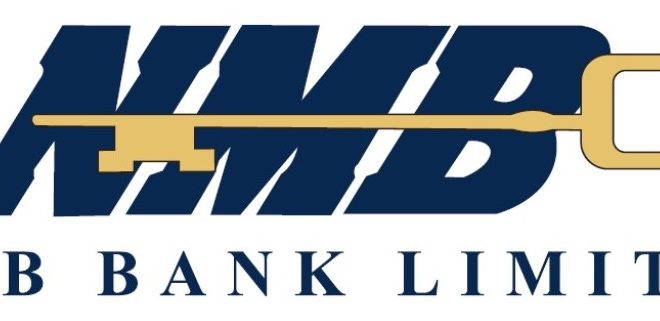Fiscal, macro-economic imbalances to continue: Imara
Local asset management firm, Imara Capital Zimbabwe, says the country still faces complex fiscal and macro-economic imbalances that are likely to endure for as long as the economic mismanagement persists.
The asset management’s primary focus is the management and administration of the investment portfolios of Zimbabwean institutional pension funds, corporates and high net worth individuals.
Commenting on the Mid -Term Fiscal Policy Review presented on July 28, 2022 by Finance and Economic Development Minister Mthuli Ncube, Imara said as largely expected came as a non-event, with issues around high inflation, depreciating local currency among other issues continuing to negatively impact the economy.
“Facts are stubborn things, but statistics are pliable”. In our view, the country still faces complex fiscal and macroeconomic imbalances. These are likely to endure for as long as the economic mismanagement persists,” it said.
It added that foreign currency shortages, growing informalisation of the economy, policy inconsistencies, waning disposable incomes, limited domestic and foreign direct investment, power outages, liquidity constraints, uneven weather patterns continue to take toll on the economy.
Mthuli in the mid-term budget review trimmed his economic growth forecast for 2022 to 4.6 percent from his previous 5.5 percent, citing “the impact of the external global environment as well as the country’s own unique circumstances”.
He announced a raft of measures to increase revenues and this includes new taxes on mines and tougher action against tax dodgers.
Reflecting the impact of inflation on the budget, Mthuli announced a supplementary budget, proposing additional spending of $929 billion. Of this extra money, 53 percent is going towards salaries, while 19 percent will go to capital projects.
In the first six months of the year, the government collected revenue of $506.6 billion and spent $534.5 billion. This left a budget deficit of $27.9 billion, against a target deficit of $45 billion.
That said, Imara said it believes that Zimbabwe’s assets have a compelling story, as they remain undervalued relative to replacement cost or similar assets in the region.
The asset management firm said that these undervaluations represent the risk attached to Zimbabwe due to its economic circumstances.
“For the rest of the year we expect most of the movement in stocks to be inflation driven and the lack of such inflationary movement would imply a buying opportunity for long-term investors.
“However, the level of uncertainty remains high in the short term,” the firm said.
Commenting on the company’s financials for the year ended March 31, 2022, chairman Peter Bailey, said the new financial year has seen the ZSE rally higher in ZWL terms as investors take fright from rising prices and a devaluing currency which has driven Imara’s funds under management to higher levels.
As a result, Funds Under Management (FUM) ended June 2022 at over $63 billion and in US dollar terms, however and using the official interbank rate for consistency at $371, this number equated to US$171 million.
“This is a significant fall in USD terms since Imara’s year-end, a trend that has continued into July. Indeed, at current levels valuations of businesses listed on the ZSE in USD terms are the cheapest they have been since 2020 and offer investors excellent value as well as an inflation hedge,” he said.
Imara said that it has over the years minimised money market investments and leaned on assets for businesses listed on the Zimbabwe Stock Exchange (ZSE) as it sought to hedge against value erosion.
Bailey said FUM ended the year at $48 billion or US$335m using the auction exchange rate of $142 to the USD which compares with US$152 million in March 2021.
“Whichever rate used FUM in USD terms has again risen strongly despite the pandemic that started back in March 2020,” he said.
He said that Imara’s revenues, which grew to $302 million from $126 million in prior year, were driven by the underlying funds under management that are heavily influenced by the level of the ZSE.
“Our investment policy over the past few years has been to minimise money market assets, which have provided very poor yields and whose capital values have been severely depleted in real terms due to rapidly rising inflation.
“We have therefore invested the bulk of our clients’ assets into businesses listed on the Zimbabwe Stock Exchange (‘ZSE’),” Bailey said.
During the period under review, management fee-income from Pension Funds grew to $240 million up from $108 million in prior year while non-pension funds fee-income grew to $61 million from $21 million in 2021. Other operating income grew to $59 million from $22 million in prior year.
Bailey said that Imara earned net profits of $116 million during the year, up from $22 million the year before.
He noted that official inflation ended March 2022 at 73 percent although this had since risen to 192 percent in June.
He noted that this compared with Treasury Bill rates and bank deposit rates of below 25 percent.
“As reported in last year’s Chairman’s Statement, the ZSE rose substantially in 2020/21 from a very low base and with the gains achieved in this financial year, USD valuations were no longer cheap in USD terms by the end March 2022.
“However, so long as inflation remains high and money market returns stay substantially negative in real terms, the ZWL values will continue to rise in Imara’s opinion,” said Bailey.
He noted that Imara’s balance sheet and capital base remained robust and ended the year well above the Securities and Exchange Commission of Zimbabwe’s minimum capital requirements.
Bailey said that as was the case in the previous financial year and in order to preserve this capital base, management chose to invest a significant proportion of its capital into listed equities rather than money market assets.-ebusinessweekly










